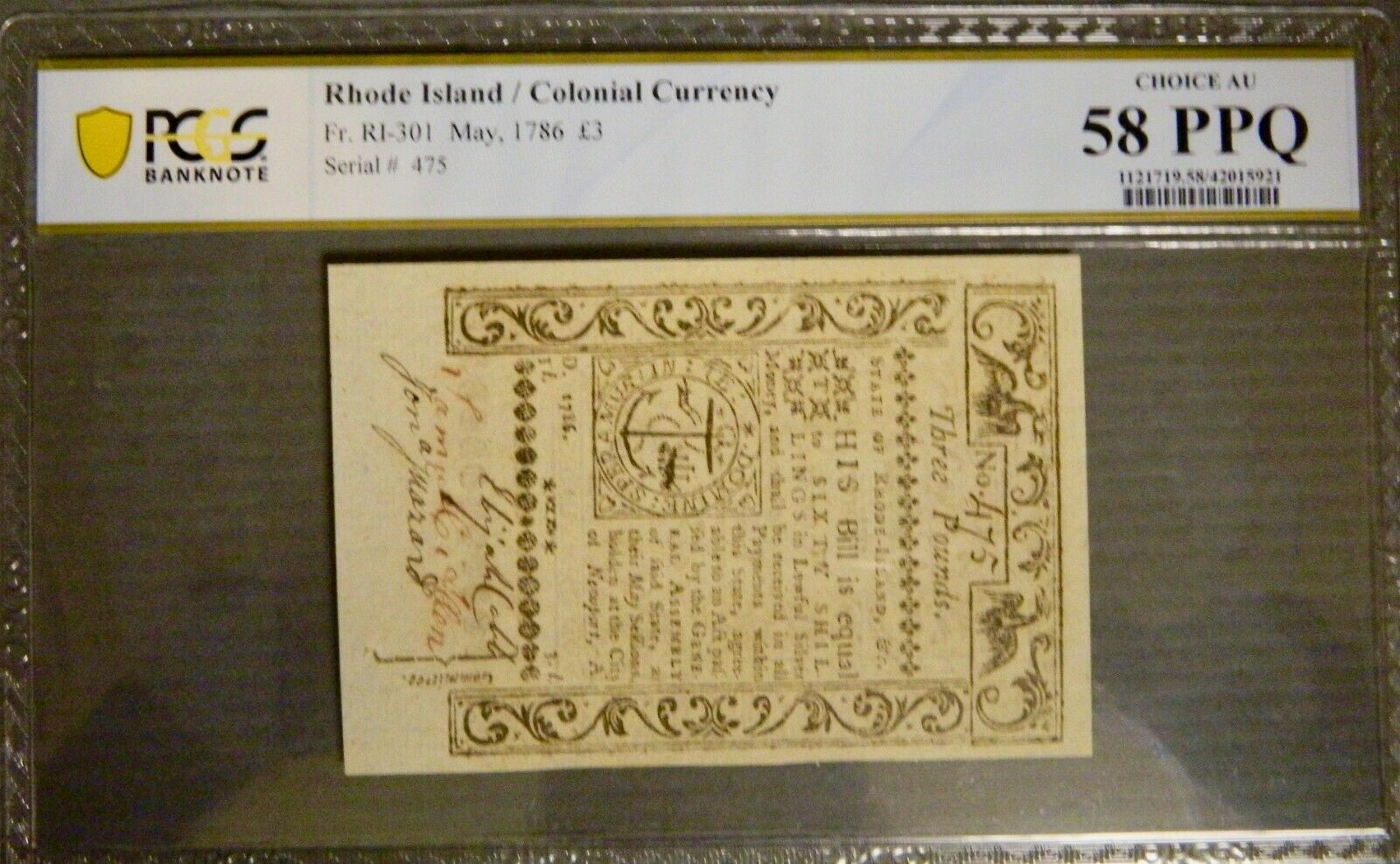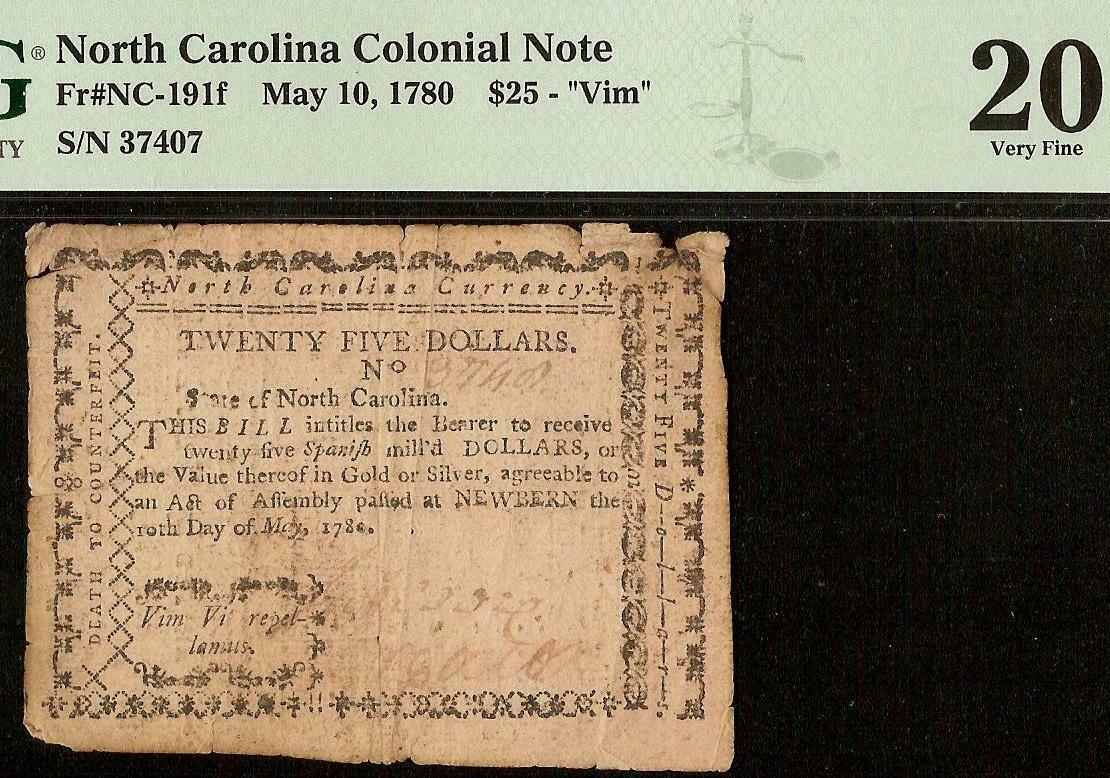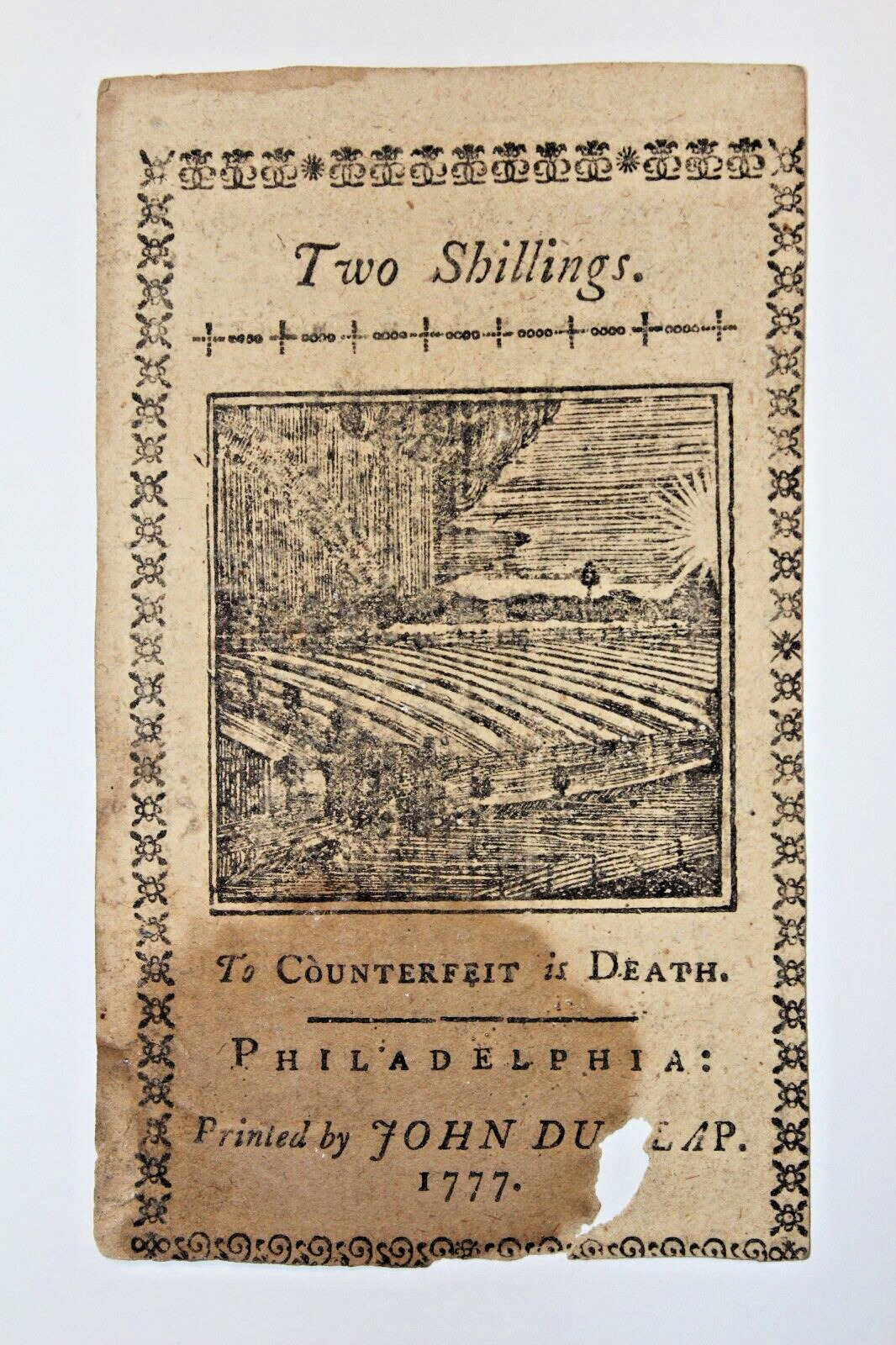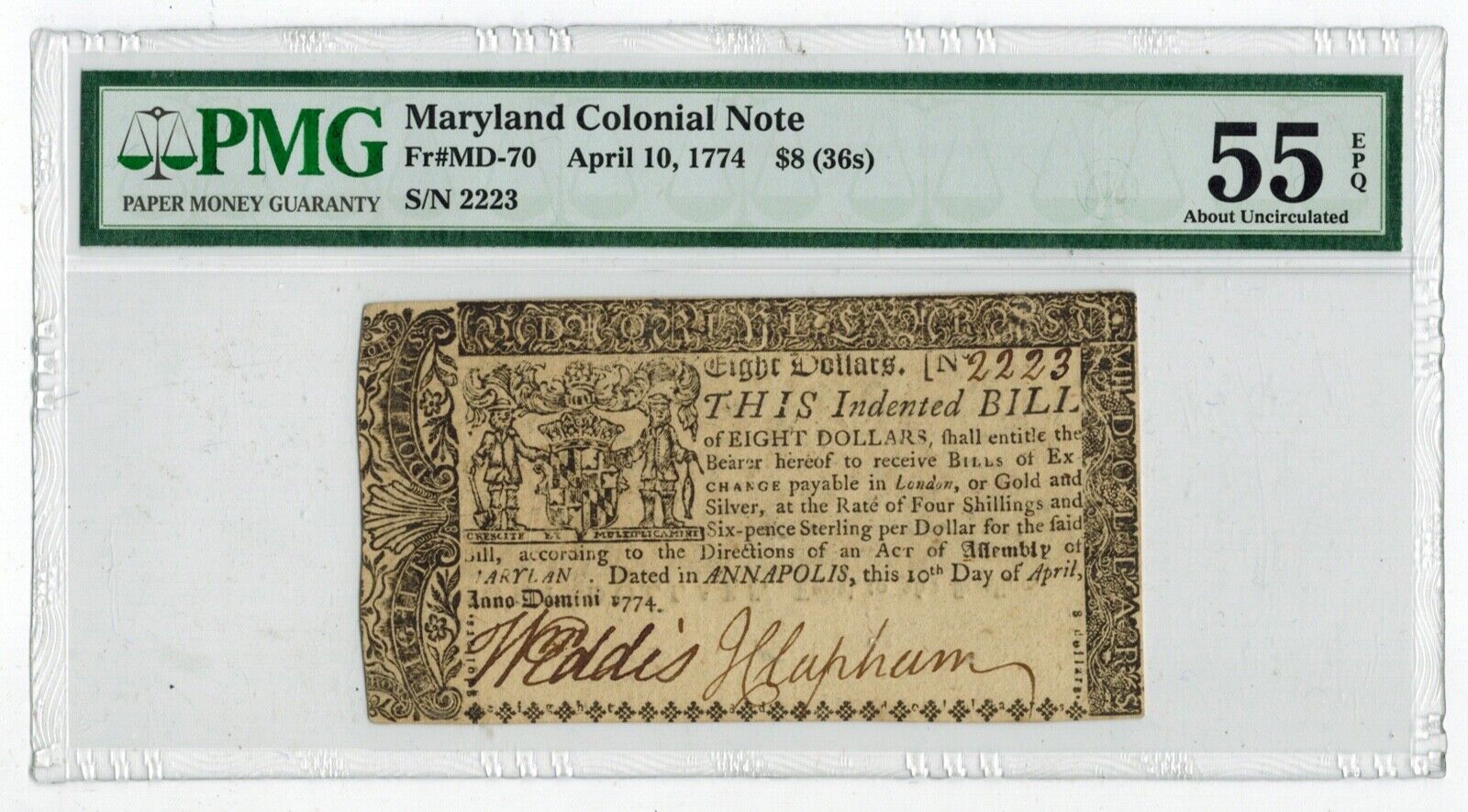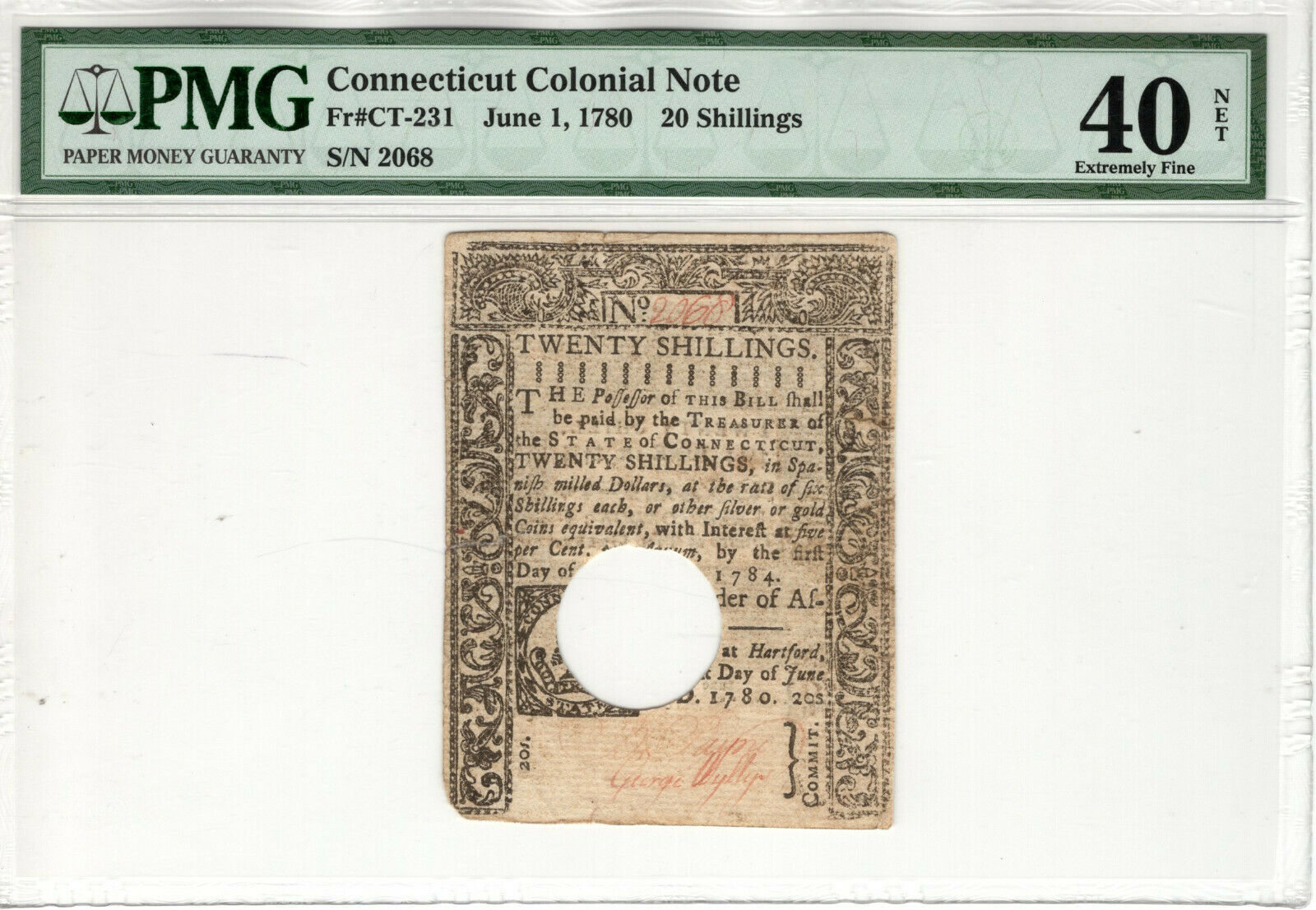-40%
May, 1786 Rhode Island 3 Pounds Colonial Currency Note PCGS 58 - GORGEOUS!
$ 242.61
- Description
- Size Guide
Description
Up for bid is this May, 1786Rhode Island 3 Pounds Colonial Currency Note.
The denomination of 3 pounds was equivalent to 60 shillings 235 years ago.
This beautiful bill contains three signatures and carries bold Serial Number 475.
This gorgeous specimen has just come back from PCGS Banknote Grading with a grade of 58 PPQ (Premium Paper Quality) CHOICE AU (About Uncirculated).
Thank you for your consideration of this stunning colonial currency from Rhode Island!
An explanation regarding the use, in some words on this Continental Currency note,
of "
ſ
" versus "s"
:
Collectors often refer to the strange spelling of words from the 17th & 18th centuries; particularly, the use of an
"
ſ
"
where seemingly inappropriate. Centuries before the advent of the printing press, there were grammatical reasons for the use of a serpentine-styled "s" instead of the more typical one. Its look was as if an "s" was elongated and leaned to the right. When this letter was converted to a block letter for the printing press (around 1500), it looked much like an "f", but with a slash through one side and not the other. For example, look carefully and notice the difference in the words "at their May
Se
ſ
ſ
ions
(Sessions)
" on the obverse of the note. This letter caused confusion with the "f" ever since, and by 1750, publishers were abandoning it in favor of the more traditional "s." By 1800, it was almost universally abandoned.
